Memorie.al / Two centuries-old plane trees on a stump named after Zef Zorba, next to the Kir river, which continues its path until it flows into the Drinazë, near Rozafa Castle, where the walls of the old city – the majority of which lie under the bed of these rivers – have prompted me to ask: “Who was that man who placed the stones of civilization on this stump named Rëmaji?” A field on this stump, which was mostly gravel with thorns and scrub, had long attracted young men to amuse themselves by target shooting at objects resting on the trunks of these plane trees. These two trunks are the oldest collectors of the projectiles that have been used in the weapons carried on the belts of Shkodra’s citizens.
A bullet that passed over the Gravel of the Kir (Zalli i Kirit) around 1840 wounded a Turkish soldier, who died a few days later. The marksman was not a boy from the Ejllori or Radovani tribes of Shiroka, but this involuntary murder stuck, as it was committed by Pjetër Pal Ejllori, and it cost this tribe so much that, from that time, the wealth, money, and land paid as compensation were never replaced in that house. This event caused this pastime to become rare in that area.
In the last decade of the 19th century, around 1895, several enclosures were established within which was a very old small shrine, around which citizens who did not have land in the old cemeteries at the end of the “Badrave” street began to be buried. The name of the street comes from this flower that grows in cemeteries. The space in that area began to lure people’s desire for the placement of the new graves that are still there today.
The mind of a man from Shkodra named Ludovik Zojzi permanently placed on that stump, beneath those two plane trees, those works of art that are there today and are called “The Rrëmaji Cemetery.” The cemetery’s chapel was designed and implemented by the engineer himself. The floor plan made by him is still kept today by the Zojzi family. Ludovik Zojzi was born in Shkodër on November 23, 1910, into the old Zojzi family. This household is known for the genuine intellectuals it gave to the city.
Keli finished commercial school and was a well-known tenor singer in the groups of musicians led by Father Martin Gjoka. Zefi was a Dr. Lawyer, a graduate of Italy. Rroku was one of the best ethnographers of Albania, if not the best and most capable. Ludovik, after finishing the “Illyricum” Lyceum on June 27, 1928, with excellent results, stood out for his very good behavior and won over the personnel of the Franciscan school, who sent him to study in Padua, Italy.
There, he honored the Albanian generation for his diligence and will to study. On November 10, 1933, he graduated with a doctorate in electrical engineering, exactly when Albania was taking its first steps to emerge from centuries of darkness. He came to Shkodër as a professor at the State Lyceum until October 1, 1937. In the last two years of his stay in his hometown, he was also a consulting engineer at the City Municipality. In 1937, he was appointed Technical Director of the General Directorate of PTT (Post, Telegraph, and Telephone) in Tirana, a job he continued until September 15, 1943, the day on which, as he was leaving his house to go to work, he was treacherously assassinated by the communists of Tirana.
The reason is simply understood: an engineer from Shkodra, a Catholic, a graduate of Padua, from an intellectual family, who had not reconciled with communism, was indifferent to the National Liberation Movement – just like the majority of Shkodra – and was quickly labeled by communist groups as: “…agent, fascist, collaborator of the occupier and the clergy, spy, and traitor…”! This same black fate befell Dr. Eng. Ludovik Zojzi, at the age of 33, a well-formed man equipped with sound contemporary culture.
Eng. Ndoc Naraçi, who knew Ludovik closely, having worked with him in Tirana, told me around 1989 that the real reason for his murder was the communists’ request for him to cooperate with them, something Ludovik refused. The PTT in Tirana was one of the most active centers of the communist groups, so those who were not connected to these groups were considered dangerous to their work and needed to be “cleared.”
This is documented in the newspaper “Zëri i Popullit” (Voice of the People), dated December 3, 1959, in an article by Qeverim Çeli, a former member of the communist PTT group, who writes: “…The success achieved by the strikers of the General Directorate of PTT caused other employees to increase their faith in the Communist Party and its correct leadership. From the ranks of these strikers, the guerrillas who eliminated the spy and enemy of the people, Ludovik Zojzi, were later organized!”
Below are also noted the authors of these “successful” actions, the organizers and the bloodthirsty criminals. The article continues: “…At that time, comrades worked in the General Directorate of PTT: Adil Çarçani, Fiqrete Shehu, Nikolla Profi, Mustafa Qilimi, Ilo Panduku, and other organizers!”
Which of these illiterate criminals could tolerate an engineer who graduated from Padua, Italy, above their heads? Which of these fanatic communists could bear to see a former student of the Franciscan Gymnasium or a former pupil of the Jesuit school in Shkodra, when the duty of these vagabond groups was the destruction and erasure from the face of the earth of the bases of European culture?
What did the heads moldered with Marxist-Leninist and Stalinist ideas, educated as anti-Albanians in the nests of immorality of the Yugoslav communists, think for 50 years – they who only knew how to kill and greeted each morning with the slogans: “a bullet to the forehead” of true patriots?!
The assassination of Ludovik Zojzi was the beginning of communist terror against the Albanian intelligentsia that had been formed in Western schools, it was an assassination against cultured Europe, it was the fulfillment of a duty to the Yugoslav teacher, it was a vow to the great national betrayal that the fratricidal Communist Party of Albania was committing against its own Albanian People!
The crosses of the Rrëmaji Cemetery were irritating to the nerves of the anti-Catholic communist fanatics. Many times, misleading plans and platforms were projected, supposedly for new constructions, only to destroy those works of art that the man from Shkodra, Dr. Eng. Ludovik Zojzi, had designed and implemented. Whenever the leaders of the Labor Party passed by there, they would repeat under their breath: “Still here, those things…”?!
It was the chest of the patriot Gjon Kamsi, it was Gjikami, the blood brother of Luigj Gurakuqi, who did not fear anyone’s eye but clenched his jaw and told the enemy: “No! You do not dare to touch this land, because it is blessed with the blood of the patriots who worked and died for Albania! You do not dare to move the bones anointed with the Holy Chrism of Filip Shiroka, Kol Idromeno, Simon Rrota, Hil Mosi, Kel Marubi, Dom Ndre Zadeja, Dr. Federik Shiroka, Dr. Gjon Saraçi, Prenkë Jakova, of Kakarriqi, Muzhani, Topalli, Serreqi, Dedejve, Prelejve, Prennushve, etc., who were the foundation stones of the city!”
50 YEARS AGO… 1967
They burned that cemetery Chapel one night, left desolate… they burned the roof one night under which so many Albanians had been blessed, since the siege of Shkodra, killed by the shells of the Montenegrins… with Russian Mausers…! They burned it one night, believing that under that roof, the treasures of national culture were kept! They burned it one night, believing that the seed of Albanian civilization would turn to dust and ash! They burned it one night, thinking that the pillars, a symbol of martyrdom, would also fall…! They burned it one night, just like the books in the Franciscan and Jesuit libraries…!
They burned it one night, just like the school where Fishta, Harapi, Zadeja, Prennushi, Kurti, Nika studied…! They burned it one night because murderers fear only death! They burned it one night because, far away, they seemed to hear the sounds of a bell clanging through the gravel of Zalli i Kirit, tolling even underground… and it would announce the resurrection! They burned it one night, but they forgot that: the foundations of Christianity are neither broken nor burned!
They burned it one night, but they forgot that on those pillars, the smoke of incense still remains, burned in the Glory of God! They burned it one night, but they forgot the words of Meshkalla, that: “You have been burning the Gospel for two thousand years!” They burned it one night, but they forgot that under that ground boils the blood of Ded Gjo’ Luli and his comrades! They burned it one night, but they forgot “to burn” Don Simon Jubani…! Memorie.al




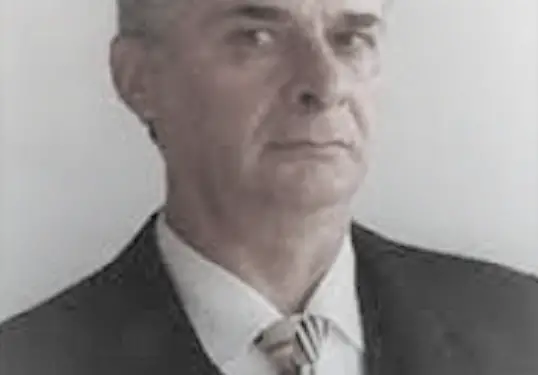
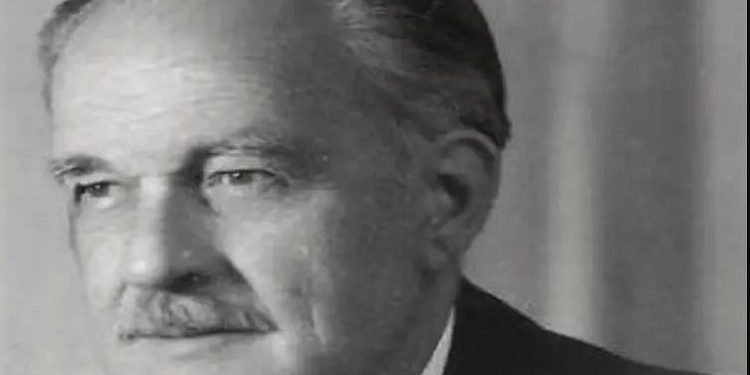
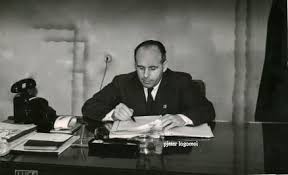
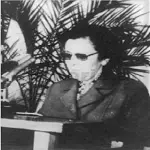
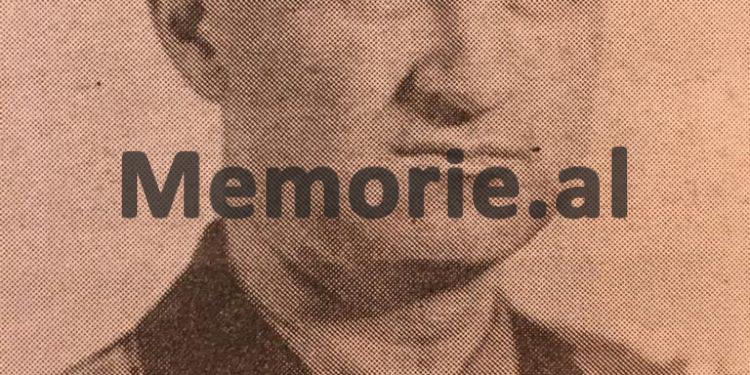
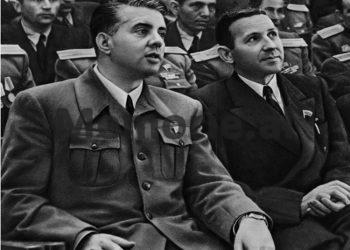
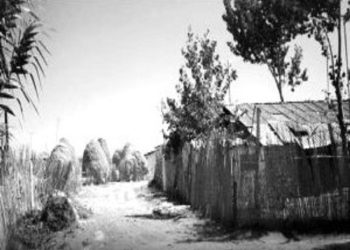
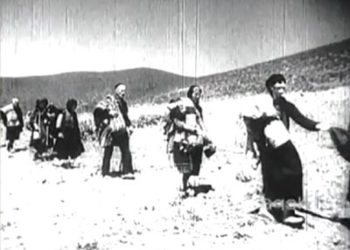
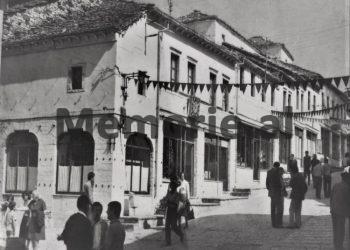

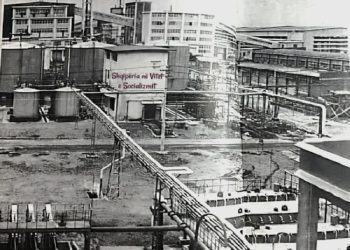
![“After the ’90s, when I was Chief of Personnel at the Berat Police Station, my colleague I.S. told me how they had once eavesdropped on me at the Malinati spring, where I had said about Enver [Hoxha]…”/ The testimony of the former political prisoner.](https://memorie.al/wp-content/uploads/2024/09/admin-ajax-4-75x75.jpg)